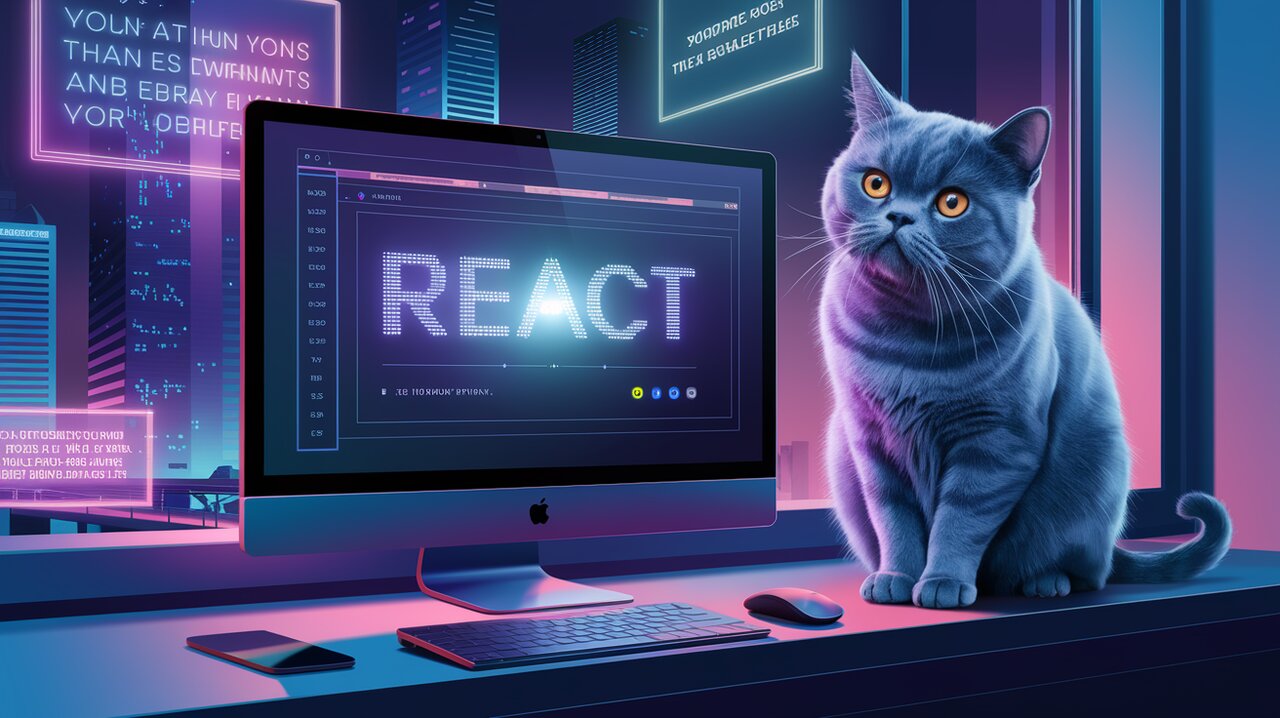
Pulsating Prose: Bringing Text to Life with React Pulse Text
In the ever-evolving world of web development, creating engaging user interfaces is paramount. React Pulse Text emerges as a powerful tool in a developer’s arsenal, offering a simple yet effective way to animate text within React components. This library allows you to breathe life into static text, creating dynamic and attention-grabbing displays that can significantly enhance user experience.
Illuminating Features
React Pulse Text comes packed with a variety of features that make it a versatile choice for text animation:
- Customizable Animation: Control the duration, delay, and iteration count of your text animations.
- Flexible Text Property Targeting: Animate text in any property of a child component, not just its content.
- Reverse Animation: Animate text from the last letter to the first for unique effects.
- Pause and Resume: Easily control the animation state with the
activeprop. - Event Callbacks: Hook into animation events with
onStart,onChange, andonEndcallbacks. - Custom Rendering: Take full control of how each letter is rendered with the
renderTextprop.
Setting the Stage
Before we dive into the exciting world of animated text, let’s get React Pulse Text set up in your project. You can install it using npm or yarn:
npm install react-pulse-text
or
yarn add react-pulse-text
Once installed, you can import it into your React component:
import PulseText from 'react-pulse-text';
Crafting Your First Animation
Basic Text Pulsation
Let’s start with a simple example to get a feel for how React Pulse Text works:
import React from 'react';
import PulseText from 'react-pulse-text';
const BasicExample = () => (
<PulseText text="Hello, React Pulse Text!">
<span></span>
</PulseText>
);
In this example, the text “Hello, React Pulse Text!” will animate letter by letter, appearing as if it’s being typed out. The <span> element is the container for our animated text.
Delayed Gratification
Sometimes, you want your text to start animating after a brief pause. Here’s how you can add a delay:
const DelayedExample = () => (
<PulseText text="I appear after a moment" delay={2000}>
<span></span>
</PulseText>
);
This text will start animating 2 seconds after the component mounts, building anticipation for your users.
Advanced Textual Acrobatics
Infinite Looping Text
For scenarios where you want text to continuously animate, you can set the iterationCount to Infinity:
const LoopingExample = () => (
<PulseText text="I keep going and going..." iterationCount={Infinity} duration={3000}>
<span></span>
</PulseText>
);
This creates a hypnotic effect as the text repeatedly animates, perfect for drawing attention to important information.
Reverse Text Animation
To add a unique twist, try animating your text in reverse:
const ReverseExample = () => (
<PulseText text="Watch me go backwards!" reverse={true}>
<span></span>
</PulseText>
);
This effect can be particularly striking for countdowns or for emphasizing the end of a message.
Custom Text Rendering
For ultimate control over how each letter appears, you can use the renderText prop:
const CustomRenderExample = () => (
<PulseText
text="I'm custom rendered!"
renderText={(currentText, nextLetter) => (
<span>
{currentText}
<span style={{ color: 'red' }}>{nextLetter}</span>
</span>
)}
>
<span></span>
</PulseText>
);
This example renders each new letter in red, creating a striking visual effect as the text animates.
Mastering the Pulse
Animating Non-Content Properties
React Pulse Text isn’t limited to just animating the content of an element. You can target other text properties as well:
const PlaceholderExample = () => (
<PulseText text="Type here..." textProp="placeholder">
<input type="text" />
</PulseText>
);
This example animates the placeholder text of an input field, providing a dynamic and engaging user experience.
Creating a Blinking Cursor Effect
To really sell the illusion of typing, you can combine React Pulse Text with CSS animations for a blinking cursor effect:
import React from 'react';
import PulseText from 'react-pulse-text';
import './cursor.css'; // Define your CSS animation here
const BlinkingCursorExample = () => (
<PulseText text="Watch me type...">
<span className="text-with-cursor"></span>
</PulseText>
);
With the appropriate CSS, this creates the illusion of text being typed with a blinking cursor, perfect for simulating user input or command-line interfaces.
Wrapping Up
React Pulse Text offers a powerful and flexible way to add dynamic text animations to your React applications. From simple typewriter effects to complex, custom-rendered animations, this library provides the tools you need to create engaging and interactive text displays.
By leveraging its various props and combining it with CSS, you can create truly unique and attention-grabbing text animations that enhance user experience and bring your interfaces to life. Whether you’re building a portfolio, a marketing site, or a complex web application, React Pulse Text can help you add that extra touch of interactivity and polish to your text elements.
Remember to experiment with different combinations of props and CSS to achieve the perfect animation for your project. With React Pulse Text, the only limit is your imagination!
